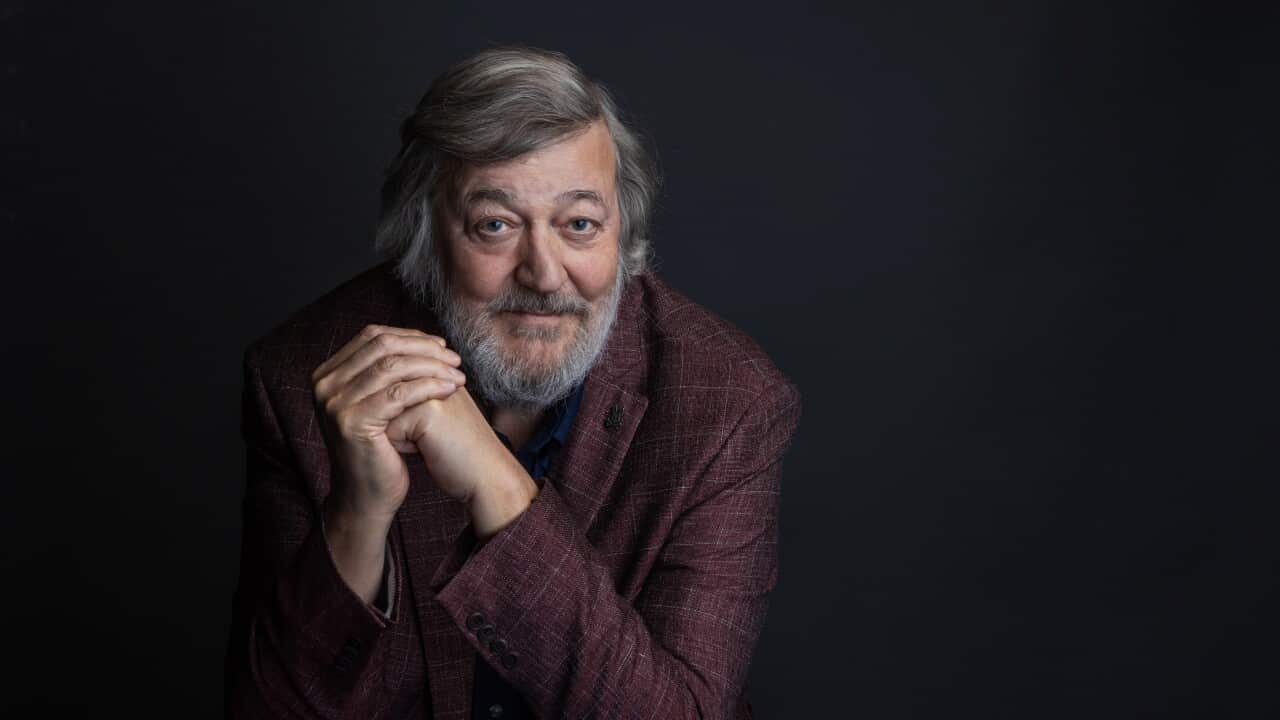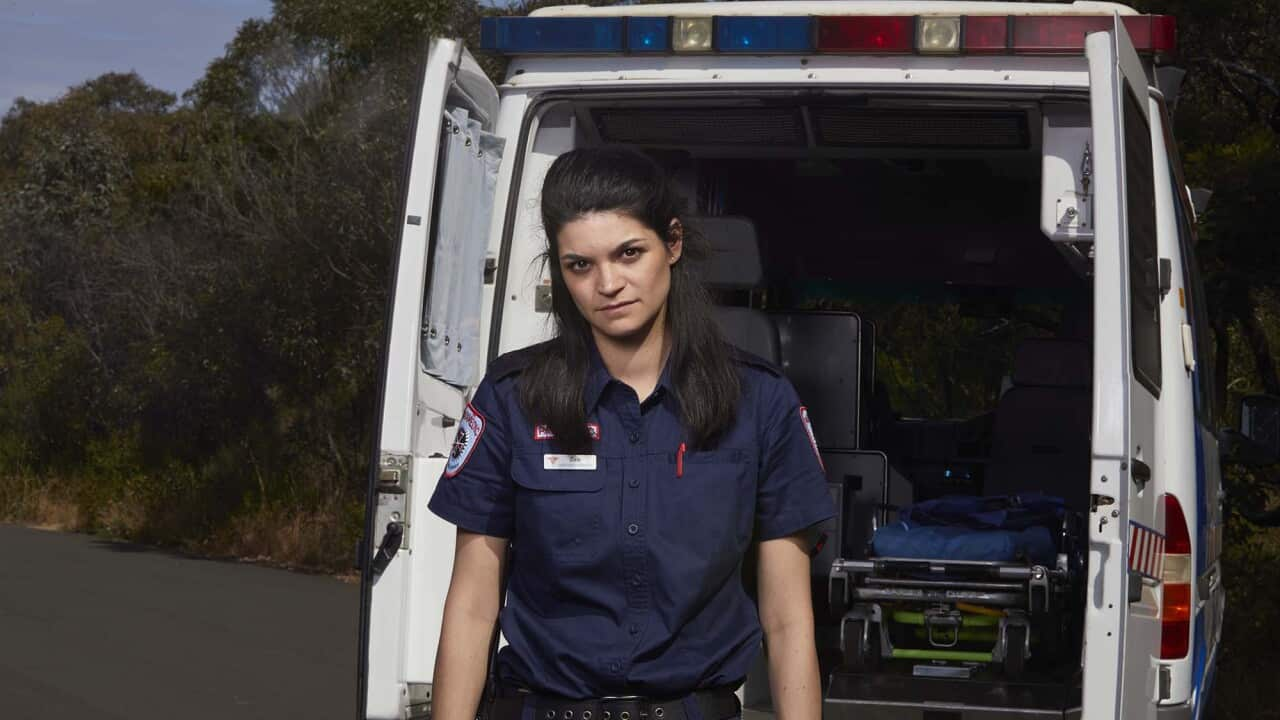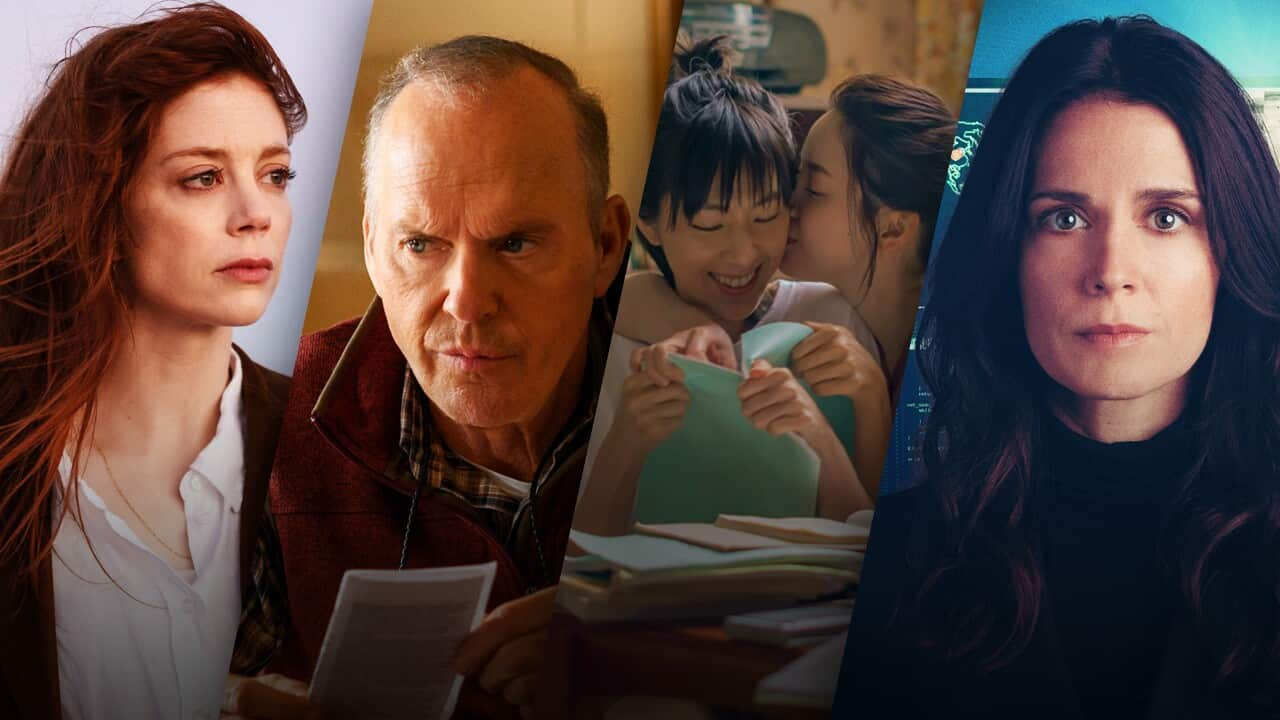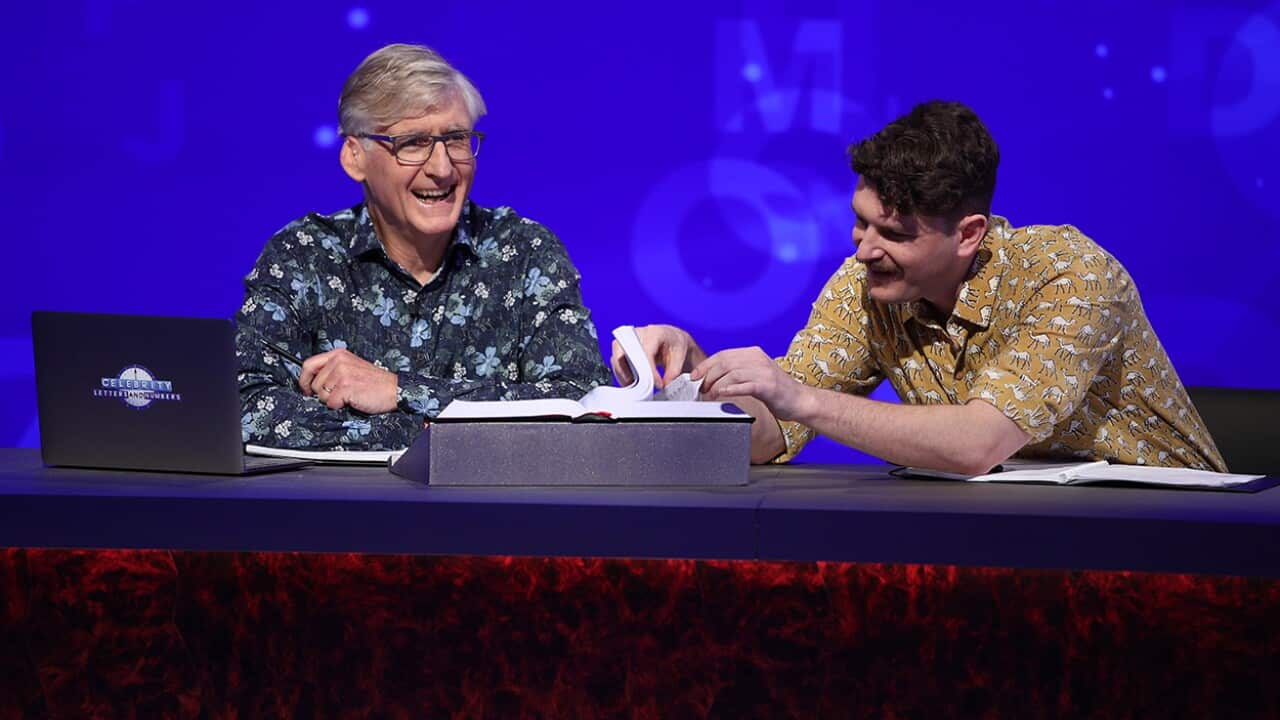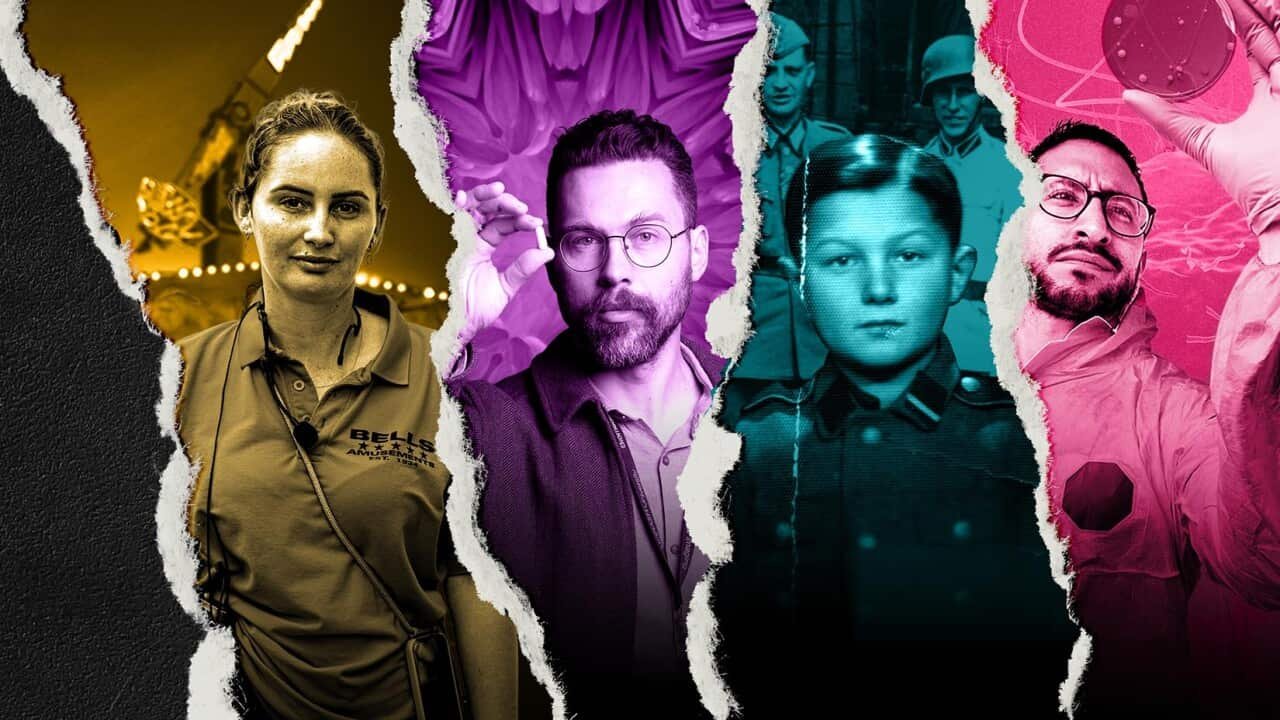How much did you know of the story of Willem Arondeus and Frieda Belinfante?
I knew nothing and I was slightly ashamed, but one of the things that so excited me was that a lot of Dutch people weren’t aware of them either. Gerrit van der Veen was a fellow artist and resistance member, but he is well known and has streets and schools named after him. We think of The Netherlands as this wonderfully tolerant, accepting country with all kinds of progressive ideas, but you could say that Willem and Frieda weren’t celebrated until recently because they were gay. Above all, I was fascinated by these two incredible people.
Was it the combination of the art, the sexuality, and your own Jewish roots that made this such a compelling subject?
Yes, there was something in it that appealed to me. If I weren't gay and I weren't Jewish, would I have the same deep sense of wanting to oppose injustice, the same sense of being apart from the main run of humanity? It's impossible to answer, because your whole identity is bound up in so many different things, but one's minority status does open up a questioning and inspection of the world.
Was there a uniquely Dutch flavour to this particular resistance movement?
Artists, wherever they come from, have their own country which we tend to call Bohemia, where their first loyalty is to art and ideas. That’s not to say that Willem and Frieda weren't proud Dutch citizens in their own way, but the ideals they lived by were most important, and war gave them an opportunity to fight for those ideals in in a unique and extraordinary way. It was a mixture of being able to fight for what they believed in, for the freedom of the oppressed and the Jews in particular, but also a way to belong, as they were both gay. Willem came out at 17 and was thrown out by his family, since which time he had always been alone in terms of his ability to relax and settle and be himself. He left his lover behind because he didn't want to involve him in the danger that he was embarking on, so Willem got himself a family, and gay people have always looked for a family. What was unique to The Netherlands was its bureaucracy which, before the Nazi invasion, was so impressive that they had the very best identity passes of any country in the world. They were also the hardest to forge because they had these incredible watermarks, but this allowed the artists’ resistance to use their specific talents most effectively.

Pictured: The Resistance Source: Channel 4 / Atticus Film
Willem seems to have been a bit lost in his life as war broke out.
Yes, it's fair to say that he wasn't regarded as the greatest artist in The Netherlands, but setting up as a painter in Amsterdam means working in the shadows of the giants. He had the passion and the excitement, inspired by the decadent movements exemplified in Britain by Aubrey Beardsley and Oscar Wilde, but unfortunately he was just too late. His work is enchanting and, had he done them 15 or 20 years earlier, would have put him in the vanguard. I think he recognised that and began to move more into writing. In a sense, the Nazi invasion gave him a purpose. You can use what you have, you don’t need to go out and buy a gun.
Frieda had a flourishing career as a conductor – why did she join the movement?
She was outraged by injustice and cruelty and unfairness, and had once suggested forging the papers of a lover who was a Russian girl, so she was always a bit transgressive. She'd exhibited courage by living more or less openly as a lesbian with lovers, and she was infuriated by the Philistine hypocrisy of Nazis, who were anti-art but loved to go to concerts and pretend to enjoy them. In classical music, there has always been a large proportion of orchestras that have been Jewish, particularly in the string sections, so she knew a lot of Jews who were being bleached out of the orchestra. That enraged her. Eventually, she was smart enough in to dress as a man and make her way via Switzerland to America. Her contribution to the film is marvellous – for her to leave a recorded testimony is immensely lucky for us and for the world.

Pictured: Stephen in Rijksmuseum Source: Channel 4 / Atticus Film
Was there a tipping when they both thought: that's it, we're doing something about this?
I think it was more of a slow realisation that they had to act. It began with Willem writing some rather vainglorious statements in magazines, calling for resistance, but he wasn't really doing anything except calling for it. Among the resistance artists were writers and printers who knew they wanted to do something, but could hardly invade the Gestapo barracks. The major problem was that Jews had identity cards with a big J on them. If they were doing a spot check and you couldn't produce your documents, you'd be in serious trouble; if you could and they had a J on them, they’d find a reason to apprehend you. Someone had a friend at the registry who got a few out-of-date copies to them, and they started to learn how to do forgeries. The final problem was when some of the forged passes were discovered, so the authorities were alert to it and could call up the registry and ask about the duplicate of the pass. Someone said: well, if there's no registry, how do they check the papers? Let’s just blow it up with an incendiary bomb! I’m filled with admiration for that extraordinary bravery.
It's very striking that they were almost as concerned that no one should die in the registry bombing, as that it should go successfully.
It writes, in very large letters, the difference between the Nazis and the humanitarian poofter artists: you can laugh at us as much as you like, but we actually care about people and about the world. Some things are worth fighting for. In the end, the way people are treated is the thing, and the artists understood that instinctively. The bombing itself worked better as propaganda than as a genuine hindrance, because there were other registries in other cities and only about 20 percent of the documents were burned in the raid. But these things have value as propaganda, in that they show that the people won't be cowed. The Germans controlled the press, but they decided to risk that by declaring it an outrage and offering a vast sum of money to anyone who would turn them in.

Pictured: Stephen looking through art in Rijksmuseum. Source: Channel 4 / Atticus Film
The treatment of some of the persecuted in The Netherlands after the war was very disheartening. Was this the result of collective guilt or a desire to pretend it somehow never happened?
There’s that psychological thing, which I've seen with lockdown, where we'll occasionally talk about it but we don’t want to go back there in our imaginations. We want to concentrate on the future. There is a strong human instinct after a crisis, to want the waters to close over that crisis. You put up grand memorials then build the myth of “normal” heroic resistance. Somehow, the presence of these gay artist heroes didn't quite connect with the story they wanted to tell in The Netherlands, which is one told in simple ways. The actual nuts and bolts, the disgrace of some people's behaviour and the heroism of others, can make things more complicated. But then, generations later, we remember: even things like the British Empire are being reassessed and it's not that you suddenly stop loving your country, you just have a greater understanding of it. This film is not an attack on ordinary Dutch civilians, it's a celebration of some people who, for some reason, have been forgotten. You try and allude to the fact that the story isn't as simple as some might think.
Would you be brave enough to do as Willem and Frieda did?
I am such a coward that I probably would have done, which sounds absurd. What I mean is that I'm enough of a coward that, if I had friends who said they were going to do it, I suspect I'd be far too scared to say I didn't want to do it. In a way cowardice can lead to courage, cowardice that doesn't want you expelled from a group. Once I had made that move, I think I’d be absolutely committed and the silly actor in me would enjoy the secrecy, the code words, the little glances… I don't think I would have come up with the idea, but they weren’t hurting people and that's important.
If you met Willem or Frieda, what would you ask them?
I'd ask them if they had any sense that the war would end and that The Netherlands would be free, and if that were to happen, that they would be congratulated and celebrated. Was that ever in their minds? I suspect they would say, truthfully, that they weren’t doing it for fame but because it was the right thing to do. In that sense, it simplified their lives. I’d tell them a bit about the present day, that I'm a man who married another man, and that The Netherlands was the first country to allow that. I'd tell them that their little part in that journey towards a more accepting and a better world has now been noted.
Stephen Fry: Willem and Frieda – Defying the Nazis airs on SBS and SBS On Demand Tuesday 13 February at 8:30PM.
Stream free On Demand

Stephen Fry: Willem and Frieda: Defying the Nazis
